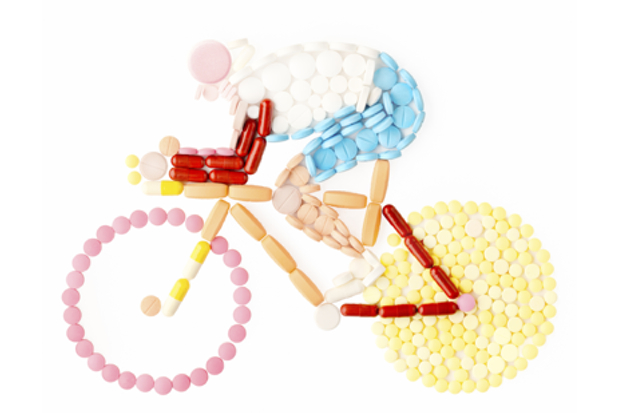In defence of doping
written for The Spectator, 3rd August 2015
Apparently, I’m supposed to be shocked by doping. This weekend, the Sunday Times published files from the International Association of Athletics Federations, suggesting that hundreds of athletes had been awarded medals at top events, despite receiving suspicious blood test results. It seems that if you’re groomed from childhood in an ultra-competitive, winner-takes-all fight for glory, you’ll stop at nothing to get an edge over your fellows. I, for one, am gobsmacked.
Who are we kidding when we try to crack down? Athletes, of course, push their bodies to the limit all the time. Blood doping, specifically, is banned because unlike elite gymnastics, muscle-sports or NFL training (which merely bestow distorted skeletons, post-retirement obesity and lifelong brain damage), techniques to increase the levels of haemoglobin in the blood are thought to also increase risks for stroke or heart attack (though, as Haroon Siddique points out, it’s hard to be sure whether anyone has actually died amid of this particular moral panic). The sports world’s moneymen can wink at premature dementia, but a stroke in the cycle lane is just not cool.
But sure, doping might kill a few people. The thing is, I’m not sure that really matters. Sports are our gladiatorial contests – if you really think the Olympics is about promoting health, ask yourself how many hurdles you’ve leapt over after watching Jessica Ennis from your armchair. I cheer for Andy Murray (well, Federer, actually, if I’m unpatriotically honest), despite the fact that back at school, he’d never have talked to a weedy nerd like me. Maria Sharapova wouldn’t have acknowledged me in the school canteen. To handle this gap between what we emulate and what we can achieve, we civilians make our elite sportsman into super-human mascots. Robin van Persie is a hero – that guy on your seven-aside team who does trick shots is just annoying.
And what have Western heroes always done? Die young, in a blaze of glory. Deep in our cultural hinterland, our foundational hero is Achilles, Homer’s warrior. The choice between a long life and a glorious reputation is Achilles’ defining challenge, except that for him, the choice is easy. His goddess-mother prophesies that he’ll die in battle but be remembered for centuries, unless he chooses to head for the hills and hide out for a long old age. He seizes the option of kleos, kudos, to be a song for the generations. If Achilles had been told that amphetamines would have upped his Trojan body count and fried his brain by the age of forty, he’d have wolfed them down with no compunction. So why shouldn’t we allow an athlete to chose a moment’s glory over a healthy old age? The counter-culture valorizes Kurt Cobain, a life wrecked by drugs, but leaving an immortal discography. Their traditionalist counterparts flock to the Royal Ballet, to see a ballerina grind her toes to dust to give her patrons a fleeting taste of beauty.
Of course, I’m being mischievous. There are other problems with legalising doping – the pressure on young athletes, the creation of a false ‘normal’, the moral necessity that the same rules should apply to everyone. But for those of us who aren’t Achilles, there are more serious questions at stake in this web of hypocrisies. As we head towards a world where everything can be medicated, we’ll be making more and more choices about our own medical trade-offs. Transhumanism is the religion of the bionic movement: replacing a leg, or a whole brain, how far should we be willing stretch the physical limits of what it is to be human? What the myth of Achilles teaches us is that there are always sacrifices, however magical your medicine. And what scares me about genetically designed babies – per Mary Wakefield’s splendid piece in this magazine last year – is not a world in which parents could choose a sporty over an intellectual child, but a world in which they could pick both. As long as drugs give us choices – even the choice of gold medal or a long life – then, for better or worse, they keep us human.





